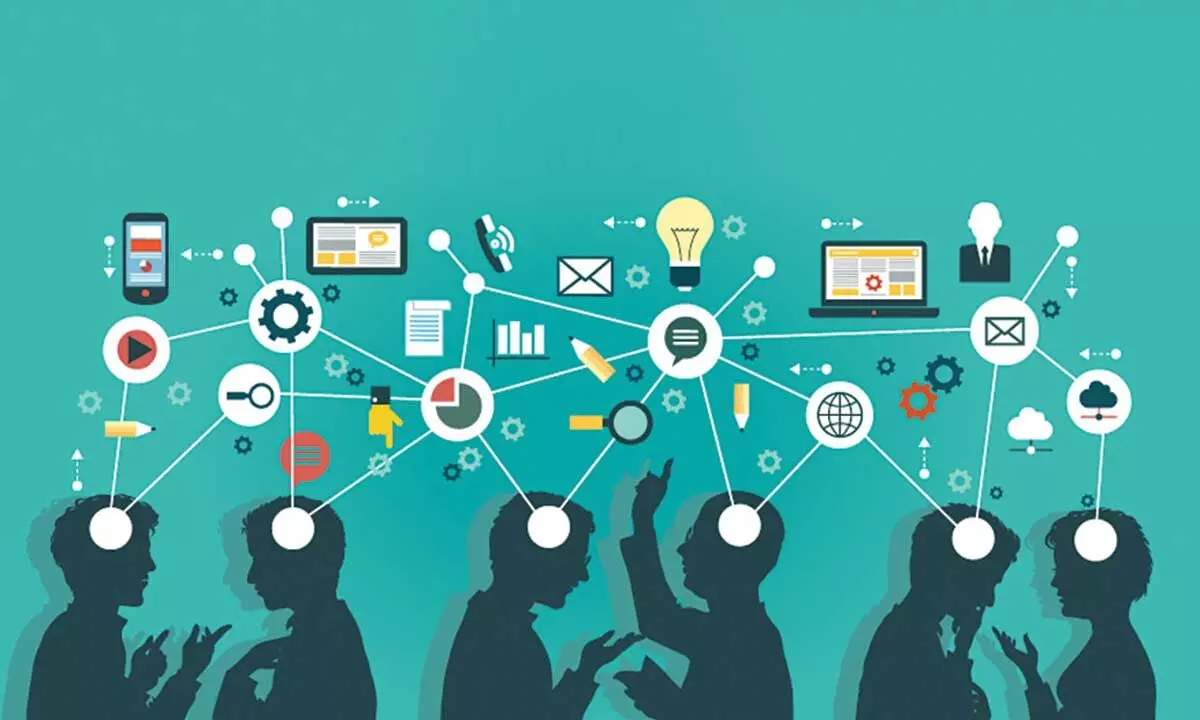Can collective intelligence rid the globalized world of all its ills?
Collective intelligence served humankind in some of its darkest hours during Covid-19 days
image for illustrative purpose

Such efforts make one understand the significance and the possibilities of global solidarity amassed through collective intelligence. This can lead to a situation where a miraculous achievement in one part of the world can also result in great developments in other locations. A suitable example would be the mammoth success of the United Payments Interface (UPI), developed by the National Payments Corporation of India (NPCI)
A peaceful world requires collective measures for the prevention of war, international cooperation to solve economic and social problems, and respect for human rights-Goran Persson
We are in an era where information is everything. Powered by technology, from providing an advantageous edge to sometimes setting off trouble, the way information is shared and analyzed makes a huge difference to the everyday functioning of our world.
Towards this, international cooperation, a much emphasised idea for decades, cannot do without developing a mechanism for borderless collaboration and coming up with what can simply be termed as, collective intelligence. This does not merely have to do with governance and politics but also with the realms of innovation, healthcare, education and myriad other spheres where a globalized and ever-globalizing world can leave a lasting positive impact. Simply defined, collective intelligence is often defined as shared intelligence that emerges from the collaboration, collective efforts and contributions of many entities. While this has been applied to organizational structures often, there is a need for an empowering internationalism to adopt it as well. The reason is simple - most problems to be dealt with or goals to be achieved are not endemic to specific locations. In the era of massive international flows and global competition, conversation and collaboration, our highs and lows are often inter-related, if not similar.
Consider the case of Covid-19 and how collective intelligence served humankind in some of its darkest hours.
Marc Santolini from Université Paris Cité, writing for ‘The Conversation’, documented how during the early stages of the viral spread, a community of biologists, engineers and developers emerged on the Just One Giant Lab (JOGL) collaborative platform to develop low-cost, open-source solutions against the virus.
“This platform, which we developed with Leo Blondel from Harvard University and Thomas Landrain La Paillasse, PILI, designed as a virtual, open and distributed research institute aimed at developing solutions to the Sustainable Development Goals (SDGs) defined by the United Nations, has been used by communities to self-organize and provide innovative solutions to urgent problems requiring fundamentally interdisciplinary skills and knowledge. When the first project related to Covid-19 – a low-cost, open source diagnostic test – was born in early March, there was a rush on the platform where number of contributions per minute kept increasing. In only one month, there were more than 60,000 visitors coming from 183 countries, including 3,000 active contributors generating more than 90 projects, ranging from mask designs to low-cost ventilator prototypes, or cough-classification AI apps,” he wrote.
Such efforts make one understand the significance and the possibilities of global solidarity amassed through collective intelligence and also that there’s no better time for this since technological advancement is at an all-time high. This can lead to a situation where a miraculous achievement in one part of the world can also result in great developments in other locations.
A suitable example would be the mammoth success of the United Payments Interface (UPI), developed by the National Payments Corporation of India (NPCI), which facilitates inter-bank peer-to-peer (P2P) and person-to-merchant (P2M) transactions. Launched in 2016, UPI has grown tremendously and as noted publications such as NewsOnAir report, digital payment transactions have grown by leaps and bounds in India, rising from Rs 2,071 crore in FY 2017-18 to Rs 5,554 crore in FY 2020-21.
Bharat Interface for Money-Unified Payments Interface (BHIM-UPI) has emerged as the preferred mode of payment and has facilitated a record 452.75 crore digital payment transactions for an overall value of Rs 8.27 lakh crore till February 28, 2022. Today, UPI is set to enter France and the European Union, alongside a presence in several Asian countries. This is a result of active observation and learning together with collaboration which drives the collective intelligence juggernaut.
These cases emblematize the potent possibilities collective intelligence comes with. Not only does it give credit to contributors, putting them on the map, it lets one brilliant idea serve as many people as possible, transcending divides and segregation. Such collaboration can prove boundlessly fruitful across domains, ranging from entrepreneurial efforts to social justice. Indeed, the best way to bring the world together for its betterment is intellectually and with the right platform in the form of technology. It remains to be seen which further milestones collective intelligence can achieve.
(The author is Founder and CEO Upsurge Global and Adjunct Professor and Advisor EThames College)

